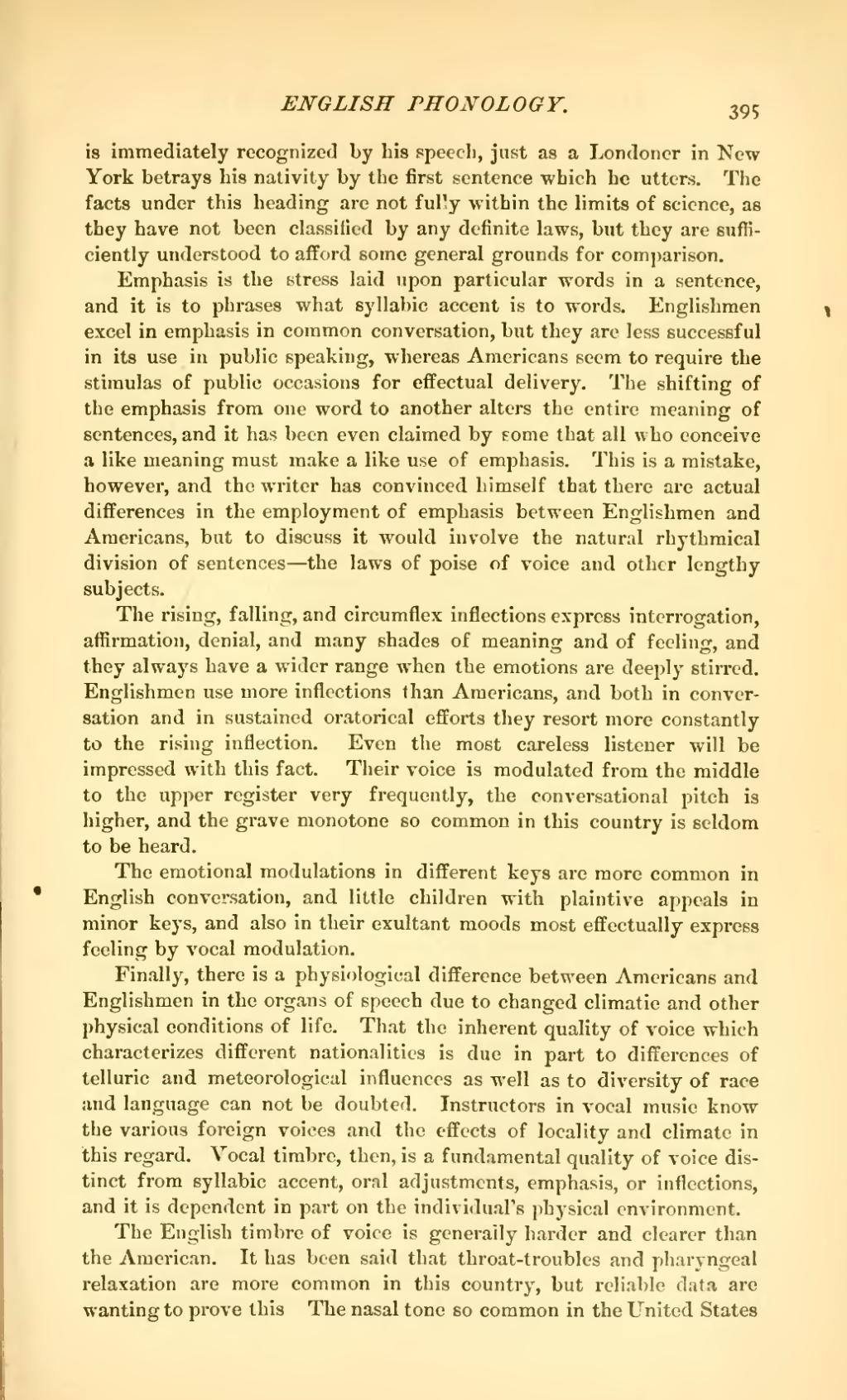.is immediately recognized by his speech, just as a Londoner in New York betrays his nativity by the first sentence which he utters. The facts under this heading are not fully within the limits of science, as they have not been classified by any definite laws, but they are sufficiently understood to afford some general grounds for comparison.
Emphasis is the stress laid upon particular words in a sentence, and it is to phrases what syllabic accent is to words. Englishmen excel in emphasis in common conversation, but they are less successful in its use in public speaking, whereas Americans seem to require the stimulas of public occasions for effectual delivery. The shifting of the emphasis from one word to another alters the entire meaning of sentences, and it has been even claimed by some that all who conceive a like meaning must make a like use of emphasis. This is a mistake, however, and the writer has convinced himself that there are actual differences in the employment of emphasis between Englishmen and Americans, but to discuss it would involve the natural rhythmical division of sentences—the laws of poise of voice and other lengthy subjects.
The rising, falling, and circumflex inflections express interrogation, affirmation, denial, and many shades of meaning and of feeling, and they always have a wider range when the emotions are deeply stirred. Englishmen use more inflections than Americans, and both in conversation and in sustained oratorical efforts they resort more constantly to the rising inflection. Even the most careless listener will be impressed with this fact. Their voice is modulated from the middle to the upper register very frequently, the conversational pitch is higher, and the grave monotone so common in this country is seldom to be heard.
The emotional modulations in different keys are more common in English conversation, and little children with plaintive appeals in minor keys, and also in their exultant moods most effectually express feeling by vocal modulation.
Finally, there is a physiological difference between Americans and Englishmen in the organs of speech due to changed climatic and other physical conditions of life. That the inherent quality of voice which characterizes different nationalities is due in part to differences of telluric and meteorological influences as well as to diversity of race and language can not be doubted. Instructors in vocal music know the various foreign voices and the effects of locality and climate in this regard. Vocal timbre, then, is a fundamental quality of voice distinct from syllabic accent, oral adjustments, emphasis, or inflections, and it is dependent in part on the individual's physical environment.
The English timbre of voice is generally harder and clearer than the American. It has been said that throat-troubles and pharyngeal relaxation are more common in this country, but reliable data are wanting to prove this The nasal tone so common in the United States

